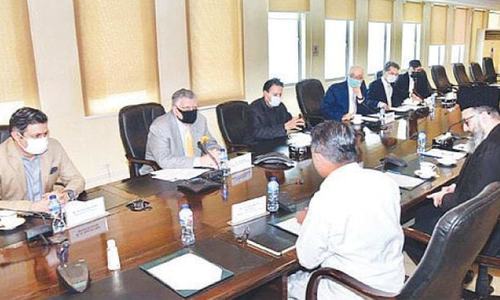ISLAMABAD: The National Electric Power Regulatory Authority (Nepra) on Monday notified an increase of up to Rs2.97 per unit in electricity rates for ex-Wapda distribution companies under the quarterly tariff adjustment (QTA) for one year with effect from October 1, 2021.
According to an order released by Nepra, along with a schedule of tariff (SOT), the tariff increase includes a fresh surcharge of Rs1.25 per unit for all consumers, except domestic consumers, and a quarterly adjustment of Rs1.66 per unit for all consumer categories. The SOT showed no tariff increase for domestic consumers using up to 300 units. However, an increase of Rs1.72 per unit will apply to the consumers using above 300 units.
Nepra clarifies it is federal govt and not the regulator that levies such surcharges
The tariff increase for all other categories — commercial, general, industrial, single-point supply, temporary supply, residential colonies of industrial units and agriculture — has been put at Rs2.97 per unit, except for agricultural tubewells for which increase will be Rs2.66 per unit. The average additional QTA, thus, works out to be Rs1.66 per unit.
This included about 83 paisa for the fourth quarter of 2019-20 and about 90 paisa per unit for the first and second quarters of 2020-21 determined by Nepra on August 6 and a lower QTA adjustment of about 7 paisa per unit for the third quarter of 2020-21.
A Nepra official, however, claimed that the net tariff increase would be just four paisa per unit and generate Rs4bn in additional revenue for Discos.
The official noted that the earlier QTA of Rs1.62 per unit expired on September 30 and was replaced by the new QTA of Rs1.66 per unit with effect from October 1 for another year, hence the additional burden would be four paisa per unit.
However, he conceded the gross tariff increase was about Rs1.66 paisa per unit as gross tariff should have gone down by Rs1.62 per unit on the expiry of the earlier QTA, but a higher QTA for another year would add burden to the consumers. He said the fresh QTA was estimated to ensure about Rs165bn revenue stream to Discos, besides over Rs25bn in general sales tax to the government.
The official said over Rs1.72 per unit QTA should have come into force in July this year, but the government had decided to delay it until October 1 to minimise the impact by replacing the existing QTA, which expired on September 30.
According to Nepra, the federal government, through a recent ordinance, has “been empowered to impose surcharges for” certain purposes of fulfilling financial obligations in respect of electric power services.
“Regarding surcharges proposed by the federal government for various categories of consumers, it is to be clarified that Nepra has not levied any of such surcharges. It is the federal government which has the statutory power to do the same,” the regulator’s order said, adding that any such surcharge was to be considered as a cost to be included in the tariff determined by Nepra.
It said the federal government had intimated the regulator that it had levied surcharges and that Nepra was simply required to indicate surcharges imposed by the government against the corresponding columns of Nepra-determined schedule of tariff for the purpose of recovery only.
“Therefore, category-wise surcharges proposed by the federal government have accordingly been included in the instant decision,” the regulator said.
The revised tariff will remain in place till September 30, 2022.
Published in Dawn, October 5th, 2021













































